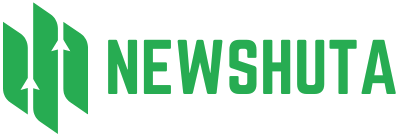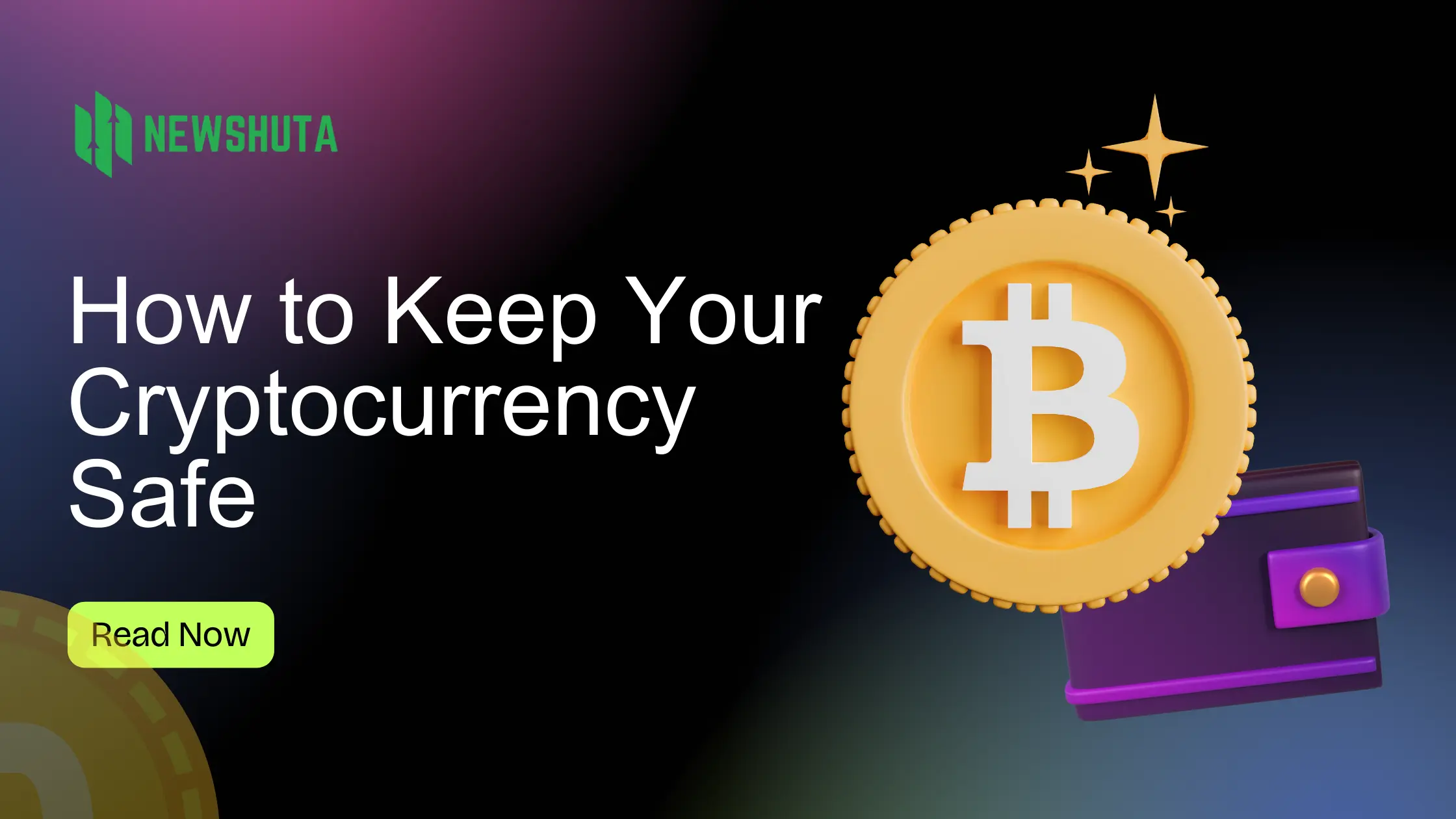Safety always comes first in the cryptocurrency world. However, as digital assets have gained popularity, so has the prevalence of fraud, hacking and theft. It doesn’t matter if you are a seasoned crypto investor or new to the field; you must keep your digital assets safe. Here are some vital tips to protect your cryptocurrency.
Protecting your investments is important by ensuring that your cryptocurrency is safe from scammers. Begin by ensuring you use a secure wallet and enabling two-factor authentication and being aware of phishing scams. You can also ensure that you regularly update your software, keep private keys private and make use of strong passwords that cannot be cracked easily. In addition, avoid accessing accounts through public Wi-Fi networks, diversify holdings, keep learning and never trust deals that appear too good. All these measures can enhance the safety of your digital assets considerably.
1. Use a Secure Wallet
The initial step towards safeguarding your cryptocurrency involves selecting the appropriate wallet for it. Wallets come in various types each with its own security level.
- Hardware Wallets: These are physical gadgets which keep your keys in private off the internet. They are regarded among the most secure because they cannot be hacked online. Some popular hardware wallets include Ledger and Trezor.
- Software Wallets: These are programs or applications that one can put in his/her mobile phone or computer system. Also, they have got convenience but at the same time vulnerable to malware as well as phishing attacks. Prefer widely used and trusted software wallets such as Exodus or Electrum.
- Paper Wallets: These include writing your secret code on paper then keeping it someplace safe for you. They are also very safe but may go missing or get damaged.
2. Enable Two-Factor Authentication (2FA)
For a higher level of security, put in place the two-factor authentication. Once again someone would require your password to gain entrance even after they have found it out. Google Authenticator and Authy are more secure than SMS-based 2FA.
3. Be Wary of Phishing Scams
Phishing scams goal is to fool you into giving away your private keys or login information. They usually come as false emails or websites that look exactly like genuine ones. Always check for the URL address you are using before entering any information on it. Bookmark important sites such as your wallet or exchange so that you don’t mistake them for phishing links.
4. Keep Your Private Keys Private
Your cryptocurrency’s gateway is these private keys. Don’t ever give them out to anyone. Possession of your private keys gives full access to your account balance by anyone else who has them. Keep them safe somewhere and consider storing them offline in a hardware wallet.
5. Regularly Update Your Software
Software updates frequently include patches meant for security designed to shield clients against recent vulnerabilities. Update regularly your wallet, antivirus and other software used inside managing cryptocurrencies accordingly will reduce the risk of malware attacks or breach of security.
6. Use Strong, Unique Passwords
To start with, one must use strong passwords which are also unique for their crypto exchange accounts and wallets. Do not go for passwords like “123456” or “password” that can be easily cracked. Instead, aim at including letters, numbers, and symbols in your password. Moreover, you might consider employing a password manager such as LastPass or Bitwarden to secure your password information.
7. Be Careful with Public Wi-Fi
Public Wi-Fi networks are often less secure than private ones. Never access your cryptocurrency accounts or make any transactions while using public Wi-Fi. In the event you have no other option but to use public Wi-Fi, try utilizing Virtual Private Network (VPN) to protect your internet connection from hackers.
8. Diversify Your Holdings
You should never keep all your bitcoins in a single wallet. Distribute your positions among various wallets as well as exchanges so that if one of them gets hacked, all your funds will not be lost instantly when it happens. Diversification also helps minimize risks arising from single points of failure.
9. Educate Yourself Continually
The world of cryptocurrencies is forever changing. There could always be new threats and vulnerabilities coming up at any moment in time. Get updates on recent security practices and crypto news as much as possible. Choose reliable sources of information; join crypto communities; take online courses to dig deeper into the subject matter presented here.
10. Be Skeptical of “Too Good to Be True” Offers
When something seems too good to be true, it is said that it probably is. You should be wary of offers that promise high returns for no risk. Quick and easy money scams are a common trap. Always do your homework and authenticate the genuineness of any investment opportunity.
How I Personally Protect My Cryptocurrency Wallet
My initial foray into cryptocurrency got me hooked on the technology and the prospects of financial growth. Nevertheless, I soon found out that with great opportunities come grave dangers. The tales of hacks and swindles were too many to be ignored; therefore, I understood that my purse’s safety was a matter of seriousness. This is how I went about it.
Choosing the Right Wallet
I first of all picked a trustworthy wallet. After doing some research, I chose a hardware wallet. The idea of keeping my private keys offline appealed to me because it added an extra layer of defense against attacks on my currency. Many people in the crypto community had recommended Ledger Nano S; so, I bought one.
Setting Up Two-Factor Authentication (2FA)
On all my accounts, I activated two-factor authentication (2FA). At first, I utilized SMS-based 2FA but after getting knowledge on its possible vulnerabilities, I opted for Google Authenticator instead. It gave me peace of mind as even if someone got hold of my password they would still require my phone to access any accounts that might have been linked to it.
Battling Phishing Attempts
These are usually very hard to identify. Once, I received an email which was exactly like a message from my exchange that prompted me to authenticate my account. That was pure luck though because I had read about such cons. I had nothing else but went directly to the site of the exchange and no such notification could be found on it. From this encounter, I learned to always cross-check URLs and doubt uninvited messages.
Guarding My Private Keys
The significance of private keys hit me hard. My private keys were printed out and kept in a secret place where they could not be easily seen or destroyed. Even though they are more like siblings, never once did I disclose them to any person not even close friends of mine. This step guaranteed personal control over my finances only.
Regular Software Updates
I started having a habit of updating software regularly. In order for me to keep myself up-to-date with the latest versions, I would set alarms to check whether there were any updates on my wallet, anti-virus or even operating system; thus ensuring that malware and other vulnerabilities were minimized against my assets.
Strong Passwords
For me, creating strong and unique passwords for all accounts was important. By applying password manager software that creates as well as stores intricate passwords on behalf of its users so that one does not have to recall them all. Equally important is the fact that this technique prevented easy breaches possible through simple reiterations of codes on various sites by anyone who enjoys repeating themselves frequently in life can happen sometimes too quickly leading to severe consequences in cyber space later on down the road when exploited by malicious hackers for instance
Avoiding Public Wi-Fi
Public Wi-Fi is undoubtedly a convenience but at the same time it carries a lot of risk. I decided never to try accessing my crypto accounts while connected to public Wi-Fi. However, when there was no other option, I would use VPN to give me an extra layer of security. This way, my online activities were kept secret and away from hackers.
Diversifying My Holdings
To reduce this risk, I spread my cryptocurrency holdings across different wallets and exchanges. In this case, if one wallet or exchange was compromised, i did not lose all of my money. Moreover, it also gave me a sense of security that i wasn’t putting all eggs in one basket.
Staying Informed and Educated
I kept myself updated about new threats to the security and how to deal with them straightaway. Additionally, I became part of web-based digital currency networks such as following credible sources and taking some courses online. As such information enabled me adapt in the evolving dynamics surrounding cyber-security in cryptocurrencies.
Trusting My Instincts
Finally, I started relying on my instincts for decision-making processes. If an offer appeared too perfect than anything possible under the sun; I avoided such deals completely. Before deciding on any investments or ventures into businesses; therefore, I ensured that due diligence was done properly preventing me from falling prey into get-rich-quick schemes. By being cautious enough about these things it saved me from potential swindles and money loses over time.
Following these measures, I became more secure about the safety of my bitcoins. Its an ongoing undertaking; however, it’s worth the trouble when you know that your properties are well secured. If you want to be serious with your money in crypto, do this stuff and it will prevent any loss. Stay safe and always make a profit!
Conclusion
Safeguarding your cryptocurrency requires constant carefulness and preemptive actions. By making use of secure wallets, activating two-step verification, being aware of phishing attacks, and following other tips mentioned above can greatly minimize the chances of losing digital assets. Remember in crypto world; security is personal. Stay safe so as to keep your investments safe too.


Comments are closed.